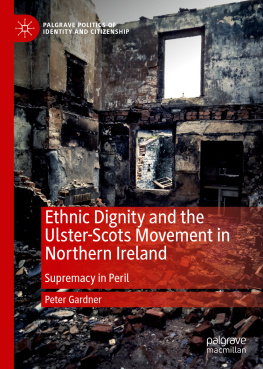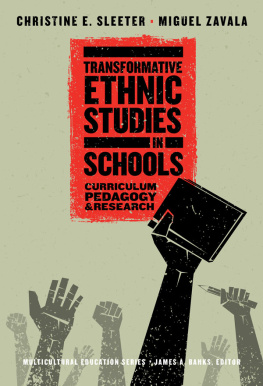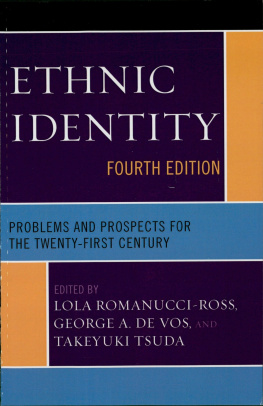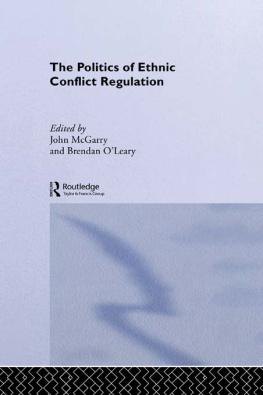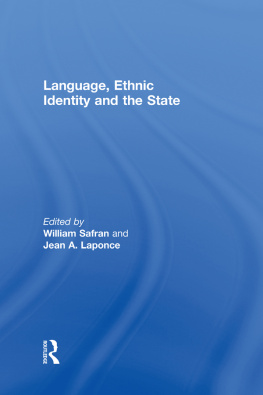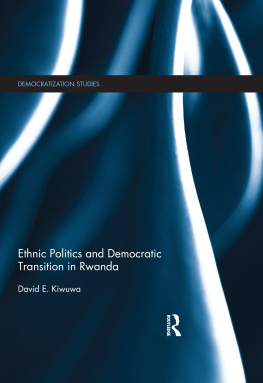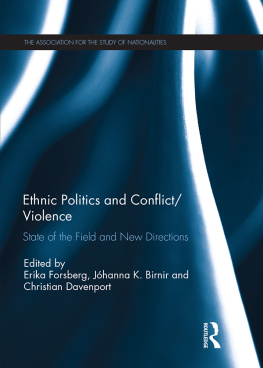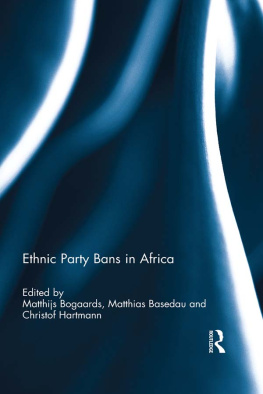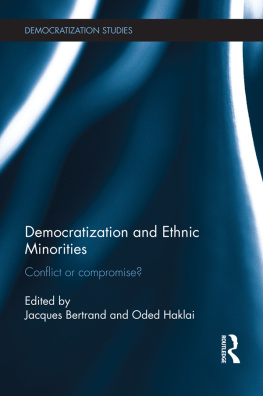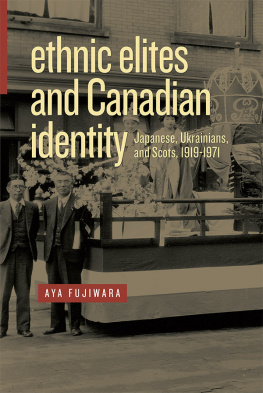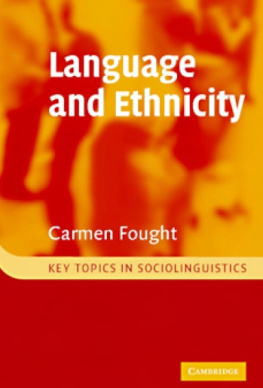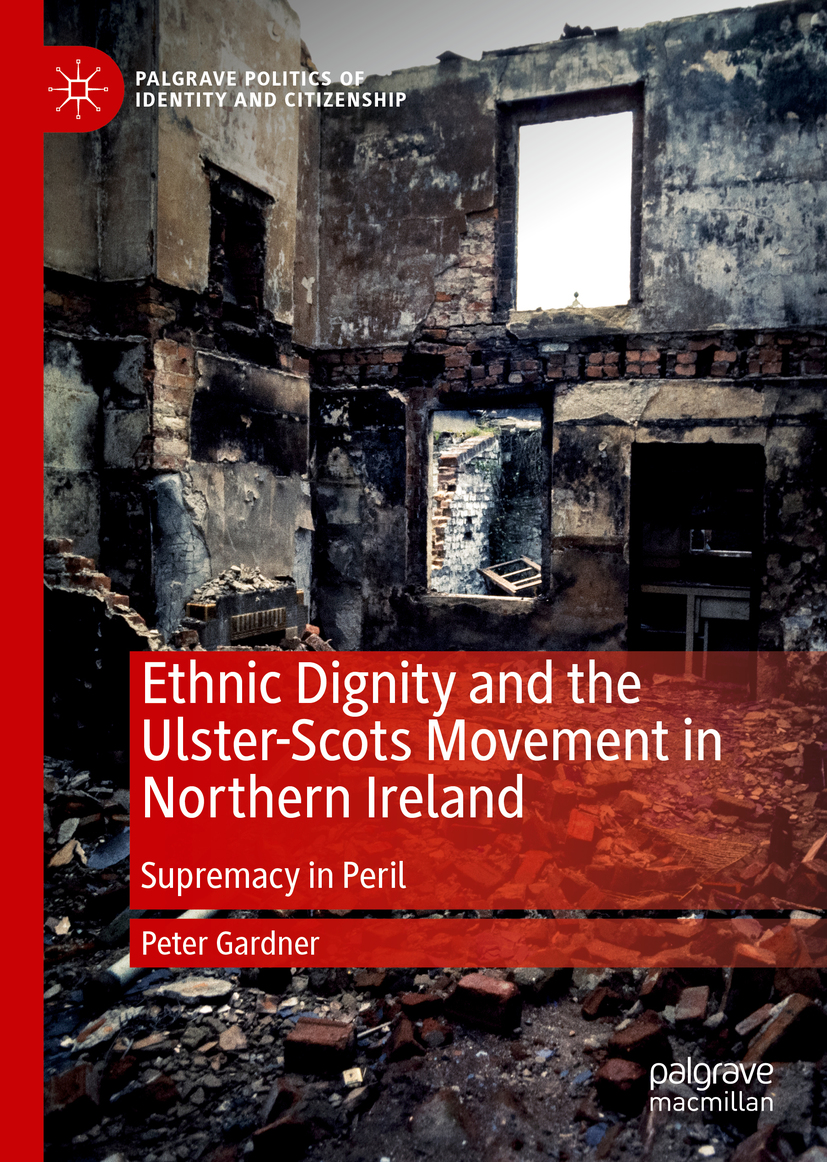Palgrave Politics of Identity and Citizenship Series
Series Editors
Varun Uberoi
Brunel University London, London, UK
Nasar Meer
University of Edinburgh, Edinburgh, UK
Tariq Modood
University of Bristol, Bristol, UK
The politics of identity and citizenship has assumed increasing importance as our polities have become significantly more culturally, ethnically and religiously diverse. Different types of scholars, including philosophers, sociologists, political scientists and historians make contributions to this field and this series showcases a variety of innovative contributions to it. Focusing on a range of different countries, and utilizing the insights of different disciplines, the series helps to illuminate an increasingly controversial area of research and titles in it will be of interest to a number of audiences including scholars, students and other interested individuals.
More information about this series at http://www.palgrave.com/gp/series/14670
Peter Gardner
Ethnic Dignity and the Ulster-Scots Movement in Northern Ireland
Supremacy in Peril
Peter Gardner
University of York, York, UK
Palgrave Politics of Identity and Citizenship Series
ISBN 978-3-030-34858-8 e-ISBN 978-3-030-34859-5
https://doi.org/10.1007/978-3-030-34859-5
The Editor(s) (if applicable) and The Author(s), under exclusive license to Springer Nature Switzerland AG 2020
This work is subject to copyright. All rights are solely and exclusively licensed by the Publisher, whether the whole or part of the material is concerned, specifically the rights of translation, reprinting, reuse of illustrations, recitation, broadcasting, reproduction on microfilms or in any other physical way, and transmission or information storage and retrieval, electronic adaptation, computer software, or by similar or dissimilar methodology now known or hereafter developed.
The use of general descriptive names, registered names, trademarks, service marks, etc. in this publication does not imply, even in the absence of a specific statement, that such names are exempt from the relevant protective laws and regulations and therefore free for general use.
The publisher, the authors and the editors are safe to assume that the advice and information in this book are believed to be true and accurate at the date of publication. Neither the publisher nor the authors or the editors give a warranty, expressed or implied, with respect to the material contained herein or for any errors or omissions that may have been made. The publisher remains neutral with regard to jurisdictional claims in published maps and institutional affiliations.
Cover image Leif Skoogfors / Getty Images
This Palgrave Macmillan imprint is published by the registered company Springer Nature Switzerland AG.
The registered company address is: Gewerbestrasse 11, 6330 Cham, Switzerland
Acknowledgements
There are many people to thank for their part in the production of this book. Foremost, I would like to express sincere gratitude to my doctoral supervisor, Jeff Miley, for his encouragement, support and guidance. Throughout the research process, he was there to offer critical perspectives, insightful questions and literature recommendations. His dedication and input throughout this process has been invaluable. I would also like to thank Mnica Moreno Figueroa and John Nagle for their inspirational work, for acting as my PhD examiners and for their suggestions for the development of the project. Their guidance has been immensely valuable.
This monograph was originally a doctoral dissertation undertaken at the University of Cambridge. The research was funded by the Cambridge Home and EU Scholarship Scheme (CHESS) through an Isaac Newton Award. As such, I would like to offer my sincere thanks to both the Isaac Newton Trust and CHESS for making this research possible.
There are many other mentors and colleagues to thank. Many thanks to Rin Ushiyama, Ben Abrams, Tiago Carvalho and Victor Roy for their friendship, their encouragement through the PhD and in the years since, and their enormously valuable comments and suggestions in reviewing manuscripts. Many thanks to the many others at the Department of Sociology in Cambridge and to Jesus College Cambridge for making my time as a graduate student there so intellectually stimulating and enjoyable. The two years I spent subsequently at the University of Aberdeen were also of much help in honing the direction and meaning of my work. Especial thanks to Bernadette Hayes, John Nagle, Gearoid Millar and Luisa Gandolfo at the Institute for Conflict, Transition, and Peace Research (ICTPR) in Aberdeen for their encouragement and intellectual contributions. I would like to thank Steve Bruce for his input on the politics of Protestantism and religiosity in Northern Ireland.
I would also like to thank Ronit Lentin, Andrew Finlay and Daniel Faas at Trinity College Dublin for their advice in the early stages of the development of this project. Ronit Lentins inspirational drive in interrogating race, ethnicity and gender and her use of sociology as a tool for social change is what convinced me I was a sociologist at heart. Andrew Finlays perspectives on systems of power and the politics of identity in Northern Ireland were highly productive. Various conversations with Daniel Faas about research methods, research development and religiosity in Ireland were incredibly useful.
I wish to express my sincere gratitude to Poppy Hull and the publishing team at Palgrave for their help and input in developing this book for publication. Poppys kindness and patience through the process has been greatly appreciated.
Thanks to my wife, Anna, for her consistent and dependable support. She celebrated in my progress, encouraged me through challenges and reassured me when I lost faith. Our son, Barnaby, was born in the last few months of finishing this book. The two of us sat together through the editing process in the early hours each day of his first month.
Contents
List of Figures
List of Tables
1. Reclamations of the Once Dominant
The logic of peacebuilding in Northern Ireland runs something like this: peace will come when both the Protestants/British and the Catholic /Irish communities can proudly declare a love of their own identity whilst also celebrating the identity of the other. In other words, peace requires benevolent but absolute ethnic bifurcation. Since the 1990s, the principle of parity of esteem has been the core value of the peace process and the cornerstone of power-sharing governance. Aside from its reification of ethnic boundaries,), the key questions that came to be asked were not those related to how Northern Ireland could deal with its multifaceted history of social, political, economic and ideological violence and domination. Rather, questions of ethno-cultural recognition were foregrounded, including those related to the fact that Northern Irelands Protestants lacked a coherent narrative of their cultural identity.

